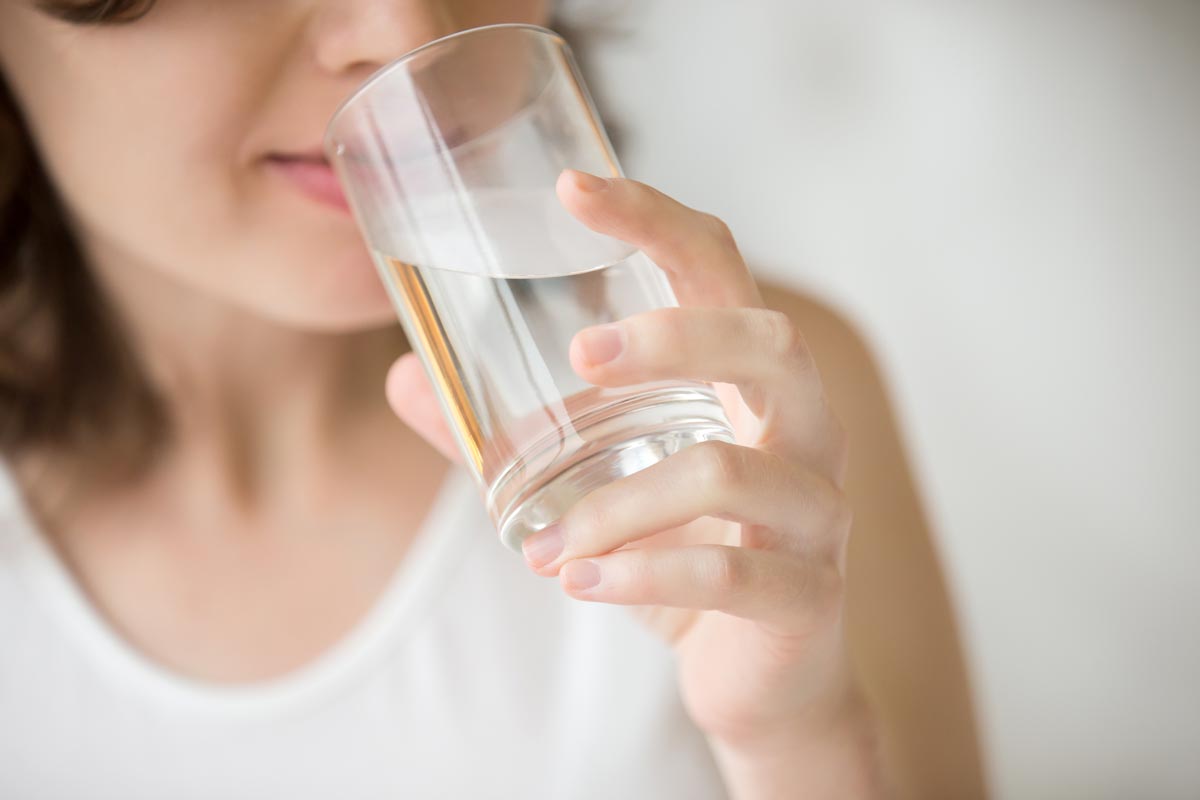If you’ve ever been swimming in a communal pool, you know the taste of chlorine. More important, you know how irritating it is! It stings your eyes, burns your skin and makes your hair feel brittle and dry. Safe to say you want to avoid chlorine—let alone drinking it every day. The bad news is, most of us are drinking some level of chlorine each day, due to contamination in the water supply.
Chlorine doesn’t end up in your water by mistake. If your taps are supplied by municipal water, it’s added on purpose—for the same reason it’s added to public swimming pools. Chlorine is a halogen: an incredibly powerful disinfectant that’s used to eradicate microbes, viruses and bacteria. Unfortunately, it’s also harmful to humans when consumed—even in small amounts.
The chlorine taste you’re experiencing doesn’t only mean there’s chlorine present—it means there’s an exceedingly harmful amount. It’s important to remove not only the taste, but the chemical causing it.
Why Does My Tap Water Taste Bad?
If your tap water tastes bitter, acidic or “fuzzy,” that’s likely chlorine you’re tasting. Chlorine is an extremely potent chemical that’s easy to taste and smell, even when mixed into a solution. It’s why the natatorium at the local high school always smells like chemicals or the city pool water burns when it goes up your nose! Municipal treatment facilities use chlorine to eradicate dangerous bacteria and parasites common in our drinking water, such as legionella, e-coli g, or cryptosporidium. Decayed vegetation, organic material and sediments also give water a bad color & taste, but these are not harmful and are thus referred to as aesthetics as well as the chlorine.
While plenty of other contaminants will change the taste—like copper, lead, algae, or sulfur—chlorine is perhaps the most identifiable. It’s also the one foul taste that’s entirely avoidable! Most water treatment facilities use chlorine to kill microbes because it’s cheap. The alternative option is to use ozonation to treat water, but it’s much more expensive. Too often, city treatment plants will choose to use more chlorine to achieve the same effect of ozonation at a lower level.
How to Remove Chlorine Taste
Removing chlorine from drinking water is no easy task. Because of its high solubility, it persists in fluid that’s been treated and can even survive deionization if it’s present in high amounts. The best way to treat chlorinated drinking water is through a multi-stage filtering process, although there are many individual solutions that can do the job well enough.

Distillation
Distillation with activated carbon filters can remove up to 99% of chlorine from tap water. The issue is, distillation is really only practical for removing basic elements from potable water: chlorine, fluorine, bromide, etc. Other pathogens can survive the distillation process.
Reverse osmosis
The effectiveness of a reverse osmosis system for chlorine depends primarily on the carbon filter section used in all R/O units. In this case, activated charcoal is going to be among the best. Unfortunately, RO systems are expensive and not always practical for renters.
Filtration
Under-sink, countertop, whole-home and point-of-use systems can all be effective at filtering out chlorine—so long as you use the right filter medium. Again, charcoal and carbon filters are best, and it’s hard to beat the efficiency of a multifaceted filter like the Aquaspace® compound.
There are many other ways to get rid of chlorine, but they’re just not practical for the everyday person. For example, boiling it will cause the chlorine to evaporate out. Moreover, evaporating water has much the same effect. UV light can also mitigate chlorine levels, but this is more for industrial treatment because it only serves to break molecules down for further filtering or purifying.
The best part about these solutions is that they don’t just remove the chlorine taste you’re sick of—they remove the chlorine itself! That means healthier drinking water, without the fear of ingesting harmful amounts of chlorine that take a toll on your health and wellness.
Get Clean and Delicious Drinking Water
It doesn’t take much to notice the taste (or smell) or chlorine in your drinking water. As soon as you do, start looking into a filtration system from Aquaspace® to get rid of it. While chlorine might do a great job of eradicating the microbes and bacteria in your supply, it’ll also cause harm to you if left unchecked. Aquaspace® filters give you the best of both worlds: filtration capabilities powerful enough to eradicate those bacteria, viruses and microbes and the chlorine that’s harmful to you!
Check out the complete line of water filtration systems from Aquaspace® and start drinking without the harsh taste of chlorine. Better still, experience the refreshing taste of water that’s free from everything unhealthy, yet still packed with essential nutrients to benefit your body.




Leave a comment